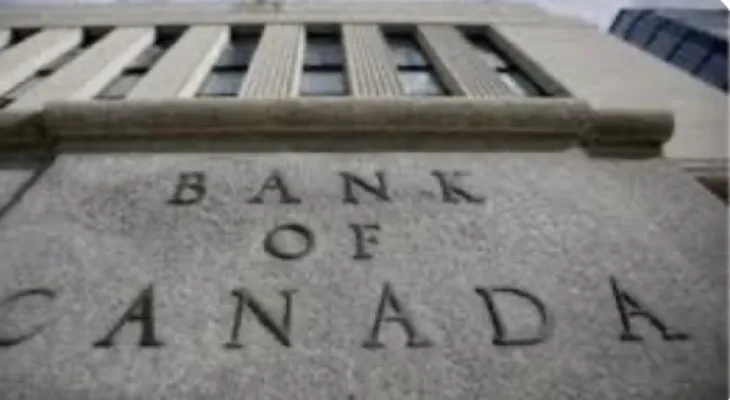Search here
Newspaper
Search here

Arab Canada News
News

Published: October 26, 2022
Below are the key points of the interest rate statement issued by the Bank of Canada today, Wednesday:
The Bank of Canada's Monetary Policy Committee decided to raise the interest rate by 50 basis points to 3.75%.
The bank rate was raised to 4.00%.
Inflation worldwide remains high and widespread, reflecting the strength of the global recovery from the pandemic, a series of global supply disruptions, and rising commodity prices, especially energy, driven by Russia's attack on Ukraine.
The strength of the US dollar adds to inflationary pressures in many countries.
Stricter monetary policies aimed at controlling inflation are weighing on economic activity worldwide.
With slowing economies and easing supply disruptions, global inflation is expected to decline.
In the United States, labor markets remain very tight even under restrictive financial conditions that lead to slower economic activity.
The Bank of Canada does not expect any growth in the US economy during most of next year.
In the Eurozone, the economy is expected to contract in the coming quarters, largely due to severe energy shortages.
The Chinese economy appears to have rebounded after the latest wave of pandemic lockdowns, although ongoing challenges related to China's real estate market will continue to weigh on growth.
Overall, the Bank of Canada expects global growth to slow from 3% in 2022 to about 1.5% in 2023, then rise again to nearly 2% in 2024; this is a slower pace of growth than expected in the Bank of Canada's July monetary policy.
In Canada, the economy continues to operate under excess demand and labor markets remain tight.
Demand for goods and services still outpaces the economy's ability to supply them, putting upward pressure on local inflation.
Businesses continue to report significant labor shortages, and with the full reopening of the economy, strong demand has led to a sharp rise in service prices.
The effects of recent interest rate increases by the Bank of Canada have become evident in interest-sensitive economic sectors.
Housing activity has declined sharply, and household and business spending has decreased.
The global demand slowdown has started to weigh on exports.
Economic growth is expected to slow until the end of this year and the first half of next year as the effects of higher interest rates spread through the economy.
The Bank of Canada expects GDP growth to slow from 1.75% to slightly below 1% next year and 2% in 2024.
Over the past three months, Consumer Price Index inflation has decreased from 8.1% to 6.9%, mainly due to falling gasoline prices.
However, price pressures remain widespread, with two-thirds of CPI components rising more than 5% over the past year.
The Bank of Canada's preferred measures of core inflation so far show no meaningful evidence of easing core price pressures.
Inflation expectations remain high in the near term, increasing the risks of entrenching elevated inflation.
The Bank of Canada expects Consumer Price Index inflation to decline as higher interest rates help rebalance supply and demand, price pressures from global supply disruptions fade, and previous effects of higher commodity prices dissipate.
The Bank of Canada expects CPI inflation to fall to around 3% by the end of 2023, then return to the 2% target by the end of 2024.
Given elevated inflation and inflation expectations, as well as ongoing demand pressures in the economy, the Bank of Canada's Governing Council expects the policy interest rate to need further increases.
Future interest rate increases will be influenced by our assessments of how restrictive monetary policy is slowing demand, how supply challenges are resolving, and how inflation expectations and inflation are responding.
Quantitative tightening complements interest rate increases by the Bank of Canada.
The Bank of Canada is committed to restoring price stability and will continue to take necessary actions to achieve the 2% inflation target.
Comments